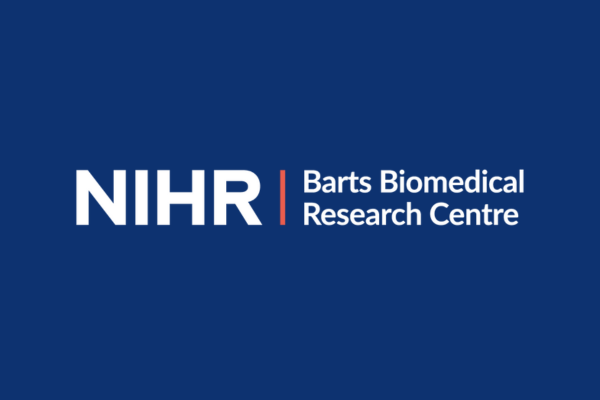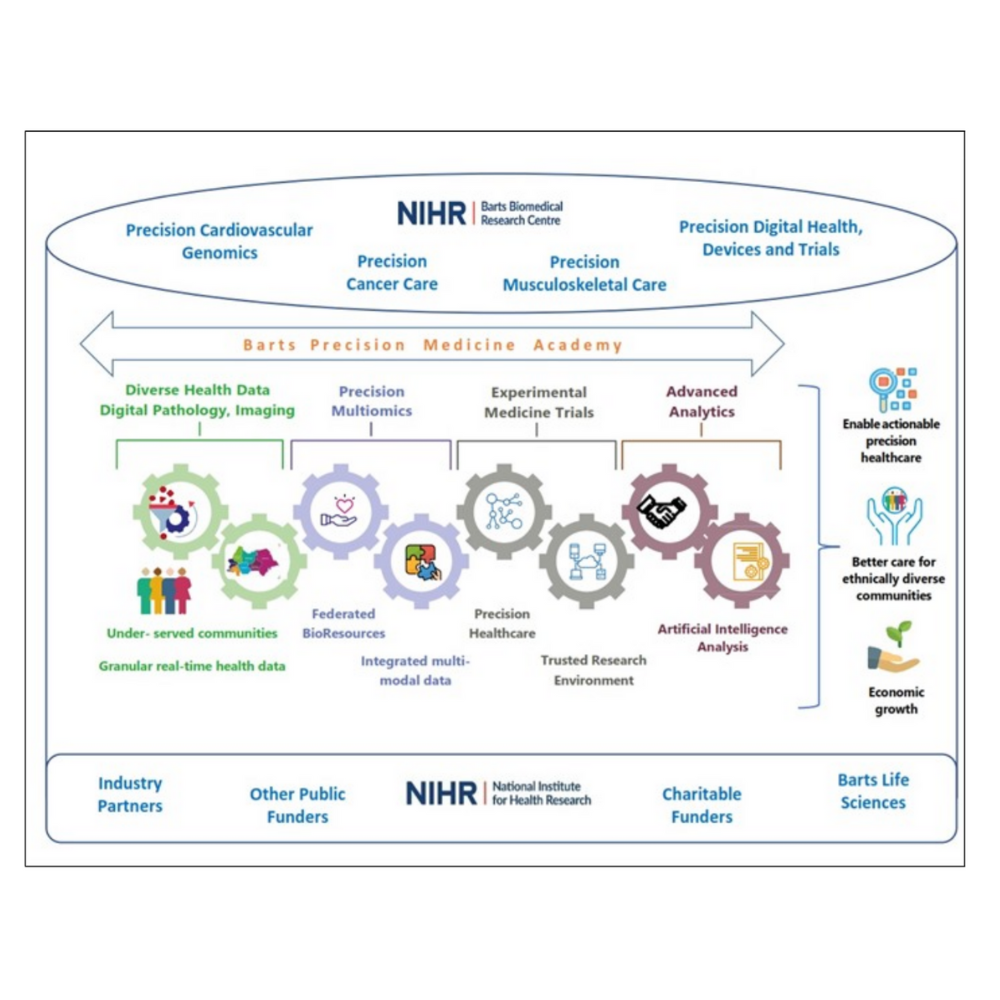Our BRC core platforms integrate and underpin our research themes creating a learning experimental medicine ecosystem to share expertise and co-solve challenges across all themes and train the next generation of researchers and health professionals to push the pace of innovation. We adapt and share best practices to standardisation of health data and multi-omics that we used to forge 5,000 health professionals into the coherent team that delivered the 100,000 Genomes Project on target.
Integrated Digital Health (Data) Core
We have established detailed, integrated primary and secondary care health (Discovery) datasets to create a real time, curated, life course record, on 2.5 m people in east London, extending to 6m Londoners via One London. With ~£10m from Barts Charity, we have been adding state-of-the-art digital pathology, advanced imaging, serial patient reported outcomes, data from wearables, apps and sensors developed by us, or our partners across all our themes. This enables remote patient involvement, digital detection of disease activity, testing of precision care strategies by patient recall, device innovation, and importantly life course follow-up to detect signatures of disease or harm.
Precision Multi-omics Core
We apply integrated multimodal health data and multi-omics learning from the 100,000 Genomes Project and utilise major technology BRC partnerships to apply state-of-the-art germline and somatic long read whole genomes, epigenetics, RNA sequencing, single cell/spatial transcriptomics and novel immune repertoire sequencing creating a detailed molecular patient profile across our all themes. We add high and low abundance proteins and micro proteomics, metabolomics and lipid-omics, an organ on a chip programme and high throughput cellular phenotyping. Our NIHR awarded funding provides the pan-BRC capacity to create the vital BioResource to enable functional characterisation of gene variants. This BRC is building on our evaluation of cell free DNA technologies in the 100,000 Genomes Project to support the NHS by creating a technology agnostic experimental medicine platform for assay optimisation of these assays enabling early cancer detection and surveillance with a direct conduit to adoption.
Experimental Medicine Studies
With a £15m investment in new clinical research facilities we will expand our early phase precision medicine trials expanding our therapeutic innovation platform and have joined the London Advanced Therapies Catapult.
Advanced analytics and artificial intelligence (AI) Core
Our BRC core harnesses over 250 AI scientists, our membership of Health Data Research UK and the Alan Turing and will draw on experience from the 100,000 Genomes Project where we assembled 4 billion clinical data points on 90,000 people. Using novel analytics and AI in whole genome analyses we uplifted diagnoses in rare disease by 15% using exomiser (invented here), detected novel splice and promoter variants (AI), and validated analytics detecting repeat expansion disorders (AI) that are now adopted by the NHS.
Barts Federated BioResource
Across BioResources in Cardiovascular disease (Barts and St George’s Trusts), Musculoskeletal, Cancer, Genes and Health and the Barts BioResource we have >87,500 patients/volunteers with e-consenting, all health data, extensive genetic data, an automated patient finder and a call centre for patient recall, and biobanking and 350,000 samples offering a major research asset.

